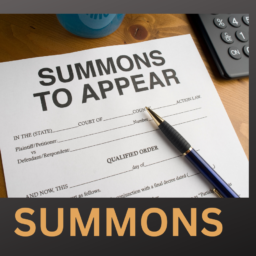You’re Not the Real Estate Professional That You Think… At Least Not According to the IRS
A Common Mistake That Leads to a Tax Audit…
At least every couple of months a taxpayer who is being audited for claimed real estate losses contacts me. The taxpayer has a rental property, sometimes multiple properties, and works full time, in a business that is not related to the rental properties. The taxpayer’s tax return was either self-prepared or prepared by a novice tax preparer who was neither a CPA nor enrolled agent. The taxpayer reported large real estate losses, above $25,000.00, to offset their wages or other income reported on the Form 1040. Unfortunately, during the audit the taxpayer learns that the amount of losses that are allowed will differ depending on whether the taxpayer was classified as a real estate professional.
Under the Tax Code, losses from passive activities, activities in which a taxpayer does not “materially participate,” cannot be deducted against non-passive activity income, such as wages, professional fees, income from a business in which you do materially participate. The passive activity rules treat real estate activities automatically as passive activities, even if the owner “materially participates” in their management, operations, etc. The result: tax losses from rental activities can’t be deducted against non-passive income.
There are two exceptions to the foregoing rule,
- the real estate professional, and
- active participation.
The Real Estate Professional
According to the Tax Code, a taxpayer is classified as a real estate professional if during the tax year:
- more than one-half of the personal services performed in trades or businesses are performed in real property trades or businesses in which the taxpayer materially participates, and
- such taxpayer performs more than 750 hours of services in the real property trades or businesses in which the taxpayer materially participates.
 Taxpayers with full-time jobs fail on the “more than one-half of personal services performed” requirement. Recently, I completed an audit where a doctor was earning approximately $330,000.00 per year and owned rental properties operating at a loss of $70,000.00. The doctor attempted to use the $70,000.00 in losses to offset the $330,000.00 of income. Odds are a doctor earning $330,000.00 per year spent more than half of their time working as a doctor and not in the real estate business. At least the government thought it was worth taking a look.
Taxpayers with full-time jobs fail on the “more than one-half of personal services performed” requirement. Recently, I completed an audit where a doctor was earning approximately $330,000.00 per year and owned rental properties operating at a loss of $70,000.00. The doctor attempted to use the $70,000.00 in losses to offset the $330,000.00 of income. Odds are a doctor earning $330,000.00 per year spent more than half of their time working as a doctor and not in the real estate business. At least the government thought it was worth taking a look.
Active Participation
As discussed, generally, a rental activity is treated as a per se passive activity regardless of whether the taxpayer materially participates. Another exception to this rule allows a taxpayer to deduct up to $25,000.00 of losses from passive rental activities against non-passive income if the taxpayer “actively participates” in those activities. To satisfy the “active participation” standard, the taxpayer must own at least 10% of the property and have bona fide role in management. The active participation standard can be satisfied without regular, continuous, and substantial involvement in an activity as long as the taxpayer participates in a significant and bona fide sense in making management decisions. It is important to note, that this exception phases out for taxpayers with an adjusted gross income over $100,000.00.
It’s easy for the IRS to challenge whether or not you are a real estate professional; therefore, documentation is essential if you are claiming to be real estate professional. The failure to maintain adequate records may result in the disallowance of deductions and losses. Finally, the law concerning real estate activities and the passive loss rules is complicated. If you own rental properties, then you should have your return prepared by a competent CPA or consult with a tax attorney prior to its submission. To speak with a tax lawyer about being audited by the IRS, please contact us today!



